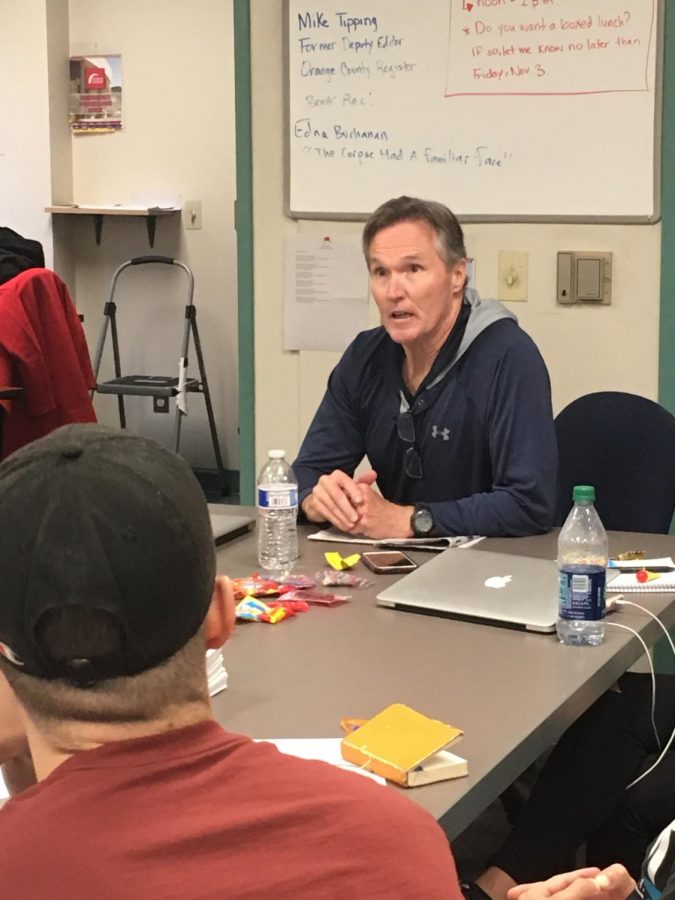From Print to Digital: The Changing Landscape
Ever wonder about the evolution of media? Or journalism? Have you thought about who can claim to be a card-carrying member of the press?
Many in the media have witnessed the big, and often alarming, transition. As the field grows larger, and older journalists retire, the history gets lost somewhere between the lines as social media creeps into how reporting works.
“Get it fast, but get it right,” said Mike Tipping, former Orange County Register deputy opinion editor to El Vaquero students and guests on Oct. 31. He added that good journalists and communicators learn by reading history, as “you’ll see the mistakes being made today were made before.”
Tipping noted that the skills students pick up in traditional journalism classes will serve them across communications disciplines, from marketing to PR and far beyond.
In his 25 year experience as a journalist and editor, Tipping has seen it all take off and change, though he remains humble about his path.
During his visit, he discussed the lifestyle of a journalist, the ups and downs of print media and gave some advice to future generations of reporters.
He recalled working with linotypes and teletypes to transfer information and print newspapers. Now, we have available a pool of resources including emails, advanced computer systems and printers. In this case, all three save the production team an enormous amount of time and effort, giving them enough leeway and flexibility to focus on important things such as copy editing and fact checking.
As he talked more in depth about his career, Tipping pointed out the raw truth. He mentioned that being a journalist is not easy, as it requires a lot of ethical decisions, the need face frequent layoffs, and more times than not, it requires patience and hard work.
He talked about the times he had to work for a doughnut shop or as a couponer at JC Penney. All of this happened between trying to make it in the big world of journalism. Despite the fact that Tipping took breaks from journalism quite a few times during his career, he always found himself back writing anything from local politics to crime, sports and civil crime suits.
The expert covered stories ranging from the investigation of notorious serial killer “Night Stalker” in the 80s to the Los Angeles Riots in the 90s. Thinking back to his favorite times as a writer, Tipping recalled what it was like to report on the 1984 Olympics, which were held in Los Angeles.
After working as a copy editor for over nine years, Tipping got his career break, and as he describes it, and moved from the third floor newsroom to the fifth floor opinion department of the Orange County Register.
“Information is coming to you like a firehose, you have to find the droplet that is actual news,” Tipping advised. “The desire for information is deeper than ever, so be a reliable source, get people’s trust.”
As the company went through various financial cutbacks and layoffs and bankruptcies, Tipping remained one of the valuable staff members and continued to thrive as the deputy editor of his department. Eventually, however, the layoffs hit his department hard, and he opted to leave after a distinguished career.
“Media seems to be aligning itself,” said Tipping. “Get out of the one you are most comfortable with.”

Growing up in a big family of journalists and writers, Marian developed her love for writing and reporting since early childhood. She is often found in...

